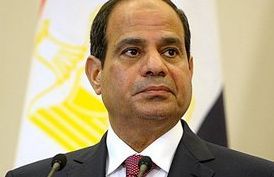Today’s Top Stories
1. The Palestinian Authority is dipping its feet into the Boycott, Divestment and Sanctions movement (BDS). A ban on products from six major Israeli companies is going into effect in retaliation for Israel withholding tax revenue transfers (which was in response to the PA’s membership in the International Criminal Court . . .).
This boycott isn’t limited to settlement products, and more companies will be gradually added to the blacklist according to the Jerusalem Post and Maan News.
The PA has in the past banned Israeli products, but has not enforced a boycott in the last few years. The boycott was not sustainable, because there were no alternatives for the products.
2. The good news is that the perpetrators were indeed convicted of torching the Wuppertal synagogue during the Operation Protective Edge. The bad news is that the “logic” of Kristallnacht sadly persists today. Never again? More like here we go again . . .
3. A former Florida professor was deported from US over Palestinian terror ties. Sami al-Arian, who was tied to Palestinian Islamic Jihad, apparently is in Turkey now.
4. HR Radio: Peach Bedrooms and Battlefield Lies: NBC News anchor Brian Williams under fire for fabricating personal experiences. And why is the New York Times interested in the bedroom color scheme of a Palestinian couple hoping to wed? Click below to hear Yarden Frankl’s interview with the Voice of Israel.
Israel and the Palestinians
• Sinai terrorists linked to ISIS decapitated 10 men accused of spying for Israel and Egypt.

• UNESCO chief Irina Bokova told the Times of Israel that she’s dead-set on vetoing a collection of Palestinian posters for special heritage status.
“I don’t think that by changing one or two posters the issue will be settled,” the association’s director general, Irina Bokova, told The Times of Israel in a telephone interview Monday. “I think this is wrong and UNESCO should not be behind it.”
While, technically, the collection has not yet been formally rejected by UNESCO, Bokova vowed to make sure this will happen eventually; she rejects not only individual posters, but the collection’s entire “approach.” . . .
“I think that very many of the posters run counter to the values of UNESCO and that is why I oppose them,” she explained. The collection includes “indeed very, very alarming posters.”
• Musician Alan Parsons brushed off Roger Waters’ request to cancel tonight’s Tel Aviv appearance. JTA/Times of Israel has more backstory.
• Israel busted an apparent terror cell in eastern Jerusalem of dozens of Palestinians involved in a string of firebomb and rock-throwing attacks on civilians and police.
• At the PLO terror trial in New York, the plaintiffs rested their case and the PLO began its defense.
Mideast Matters
 • The Wall St. Journal (click via Google News) picked up on Henry Kissinger’s assessment of the Iranian nuclear talks.
• The Wall St. Journal (click via Google News) picked up on Henry Kissinger’s assessment of the Iranian nuclear talks.
He recently testified to the Senate Armed Service Committee, along with fellow former Secretaries of State George Shultz and Madeleine Albright. This snippet quotes from the text of Kissinger’s prepared remarks.
“Nuclear talks with Iran began as an international effort, buttressed by six U.N. resolutions, to deny Iran the capability to develop a military nuclear option. They are now an essentially bilateral negotiation over the scope of that capability through an agreement that sets a hypothetical limit of one year on an assumed breakout. The impact of this approach will be to move from preventing proliferation to managing it.” (The italics are Mr. Kissinger’s.) . . .
“But I would also emphasize the issue of proliferation. Assuming one accepts the inspection as valid” and “takes account of the stockpile of nuclear material that already exists, the question then is what do the other countries in the region do? And if the other countries in the region conclude that America has approved the development of an enrichment capability within one year of a nuclear weapon, and if they then insist on building the same capability, we will live in a proliferated world in which everybody—even if that agreement is maintained—will be very close to the trigger point.”
• The fight against ISIS follows the Jordan Rules
- Jordan moves thousands of troops to Iraq border
- Jordan‘s jails are ground zero in fight against ISIS
• In a BBC Q+A (full interview, or excerpts), Bashar Assad said the US doesn’t directly coordinate airstrikes on ISIS with him, but he gets all the tactical info from Iraq, thank you very much.

• An interview with Egyptian President Abdel Fattah el-Sisi got interesting when he sparred with Der Spiegel about whether Mohammed Morsi’s ouster was a “coup” or “the second revolution.” To my pleasant surprise, more tough questions followed . . .
• Hard to believe it’s been 10 years. Ronen Bergman revisits the Rafik Hariri assassination in-depth and the evidence pointing to Hezbollah. Hariri, the Lebanese Prime Minister, was killed along with 21 other people by a massive car bomb on Feb. 14 — Valentine’s Day.
Around the World
• Since 1960, the Jewish population of Europe has fallen by 50 percent. According to the Pew Research Center, the decline’s due to a combination of emigration to Israel, intermarriage, and assimilation.
• Brussels high school teacher to Jewish student: “We should put you all in freight wagons.”
Commentary/Analysis
• Violence in the West Bank is on the rise, and Israeli officials are concerned events could spiral beyond the PA’s ability to keep control. Yaakov Lappin writes:
Ongoing incitement to hatred, by both the Palestinian Authority leadership and Fatah and at the grassroots level (such as the Palestinian community’s Facebook pages), adds to the tension.
Additionally, any threat to the monthly income of the PA’s security forces further destabilizes the situation. The role of these forces — as recognized by Israel’s defense establishment — is vital in helping to maintain order in Palestinian territories.
• With rocket reserves below its red line, a weak and desperate Hamas is working hard to rearm.
• Sherri Mandell describes how Brian Williams (and Tom Brokaw) betrayed her family.
• Looking at the state of European anti-Semitism one month after the Paris terror attacks, Tom Slater argues that if we want to tackle anti-Semitism, we must challenge hate-speech, not censor it.
• For more commentary/analysis, see William Jacobson (Is Jordan’s response to ISIS proportionate, asks no one), Dr. Reuven Berko (Qatar, Egypt on collision course), Diana Moukalled (Boycott ISIS’s videos), and David Schenker (Jordan and the future of the war against ISIS).
Featured image: CC BY Teteria Sonnna via flickr with additions by HonestReporting; atom CC0 Pixabay; Sisi CC BY www.kremlin.ru via Wikimedia Commons
For more, see yesterday’s Israel Daily News Stream and join the IDNS on Facebook.


